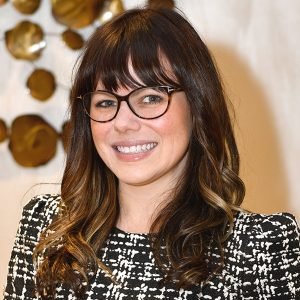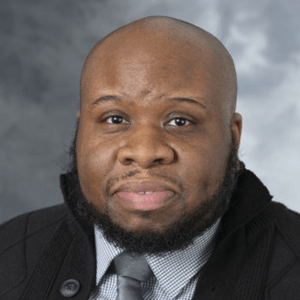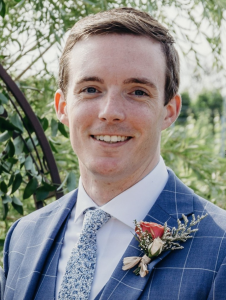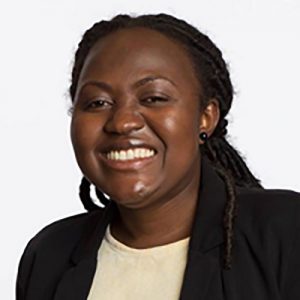The Robert L. Kane Postdoctoral Fellowship
We are not accepting applications at this time. Contact Ashley Millenbah, RLK Chair Coordinator at mill8913@umn.edu with questions.
The Robert L. Kane Postdoctoral Fellowships in Aging, Dementia, and Long-Term Care nurture scholars with strong substantive expertise/interests in long-term care, healthcare systems and delivery, management of Alzheimer’s disease and related dementias (ADRDs), intervention design/development, systems innovation, health equity, and/or quality of care/quality of life among older adults and their family/professional caregivers. Methodological skills in one or more of the following areas are preferred: (1) intervention research; (2) quantitative/longitudinal methods; (3) qualitative or mixed-methods; (5) community-engaged research methodologies; (6) program or policy evaluation; and/or (7) implementation and dissemination.
Ample opportunities exist to develop an independent program of research in one or more of the areas above in collaboration with the Director, Joseph E. Gaugler, Ph.D. (the Robert L. Kane Endowed Chair in Long-Term Care & Aging and Professor in the School of Public Health) and the Associate Director, Tetyana Pylypiv Shippee, Ph.D. (Associate Professor, School of Public Health). Fellows have the opportunity to join and seek mentorship from a diverse and vibrant group of research programs including:
- Dr. Gaugler’s Families and LTC Projects, whose mission is to build systems and solutions that empower and improve the quality of life of persons with memory loss and their families across racial, ethnic, and socioeconomic boundaries;
- Dr. Shippee’s EQuaLS Projects, whose mission is to assess measures of person-centered quality for users of long-term services and supports and develop system-level solutions to address health equity;
- The Center for Healthy Aging and Innovation;
- The Establishing Mechanisms of Benefit to Reinforce the Alzheimer’s Care Experience (EMBRACE) AD/ADRD Roybal Center;
- The State Alzheimer’s Research Support (StARS) Center;
- The BOLD Public Health Center of Excellence on Dementia Caregiving;
- The Center for Learning Health Systems;
- The School of Nursing’s Center for Aging Science and Clinical Innovation (CASCI);
- The Life Course Center;
- N. Bud Grossman Center for Memory Research and Care;
- Minnesota Northstar Geriatric Workforce Enhancement Program;
- The Center for Community Engaged Rural Dementia and Alzheimer’s Research; and
- A wealth of other opportunities afforded by the University’s Clinical and Translational Science Institute (UL1TR002494, KL2TR002492), the Building Interdisciplinary Research Careers in Women’s Health (BIRCWH; K12HD055887); and many others.
Required qualifications include: a) an earned doctorate; b) evidence of productivity in a defined area of research and scholarship; c) excellent written and oral communication skills; and d) strong interpersonal and organizational abilities. Preferred qualifications include: a) recognition in an area of scholarship; b) strong potential for external research funding; and c) a substantive research publication record.
2024 Fellow
I am a tenure-track Assistant Professor in the Department of Audiology & Speech Pathology at the University of Tennessee Health Science Center. At the University of Tennessee, I direct the Amplification and Healthy Aging (AHA!) Laboratory, where my research focuses on tailoring and individualizing hearing service delivery to improve hearing aid uptake and acceptance among older adults with hearing loss, with particular emphasis on using over-the-counter amplification to reduce cost and access barriers to hearing care. I am especially interested in optimizing hearing services for older adults traditionally underrepresented in hearing aid research, including those with physical and cognitive differences, as well as individuals from rural areas and minoritized backgrounds. A key area of my work investigates strategies for tailoring hearing devices and their associated services to better support older adults with co-occurring dementia and hearing loss, as well as their family caregivers. Underpinning my work are methodological interests in qualitative research, mixed methods, intervention science, implementation science, and community-engaged research.
University of Tennessee Health Science Center. At the University of Tennessee, I direct the Amplification and Healthy Aging (AHA!) Laboratory, where my research focuses on tailoring and individualizing hearing service delivery to improve hearing aid uptake and acceptance among older adults with hearing loss, with particular emphasis on using over-the-counter amplification to reduce cost and access barriers to hearing care. I am especially interested in optimizing hearing services for older adults traditionally underrepresented in hearing aid research, including those with physical and cognitive differences, as well as individuals from rural areas and minoritized backgrounds. A key area of my work investigates strategies for tailoring hearing devices and their associated services to better support older adults with co-occurring dementia and hearing loss, as well as their family caregivers. Underpinning my work are methodological interests in qualitative research, mixed methods, intervention science, implementation science, and community-engaged research.
What have you accomplished during your time as an RLK Post-Doc?
My time as an RLK Post-Doc was brief, as I secured a tenure-track position early in my fellowship. However, the RLK Post-Doc was the culmination of several years of working with Drs. Gaugler and Shippee and the Center for Healthy Aging and Innovation (CHAI) throughout my PhD at the University of Minnesota, first as a CHAI-sponsored Interdisciplinary Doctoral Fellow and then as a Doctoral Dissertation Fellow. I owe much of my success on the job market to the training and mentorship I received through CHAI and as an RLK Post-Doc.
Much of my time as an RLK Post-Doc was dedicated to interviewing for academic jobs and preparing my materials. I was fortunate that the fellowship afforded me time to focus on interviews, as well as training and access to peer mentorship that greatly improved my application materials. However, when I wasn’t interviewing, I still had ample opportunity for research productivity thanks to the mentorship and resources afforded by the RLK Post-Doc. During my fellowship year, I participated as a K07 fellow in Dr. Gaugler’s Advanced Behavioral Intervention Design concentration and published a first-authored manuscript on unmet hearing aid need in people with dementia in JAMDA with Dr. Tetyana Shippee’s research team. I also submitted a co-authored paper on long-term care financial planning with Dr. Marti DeLiema’s research team, as well as a co-authored paper on fostering emphasis on dissemination science with Dr. Allison Gustavson and members of CHAI’s Dissemination Special Interest Group. Additionally, I continue to collaborate with Dr. Gaugler and Dr. Shippee’s research teams in my faculty position. With Dr. Gaugler’s team, I am a co-author on a process evaluation manuscript, and with Dr. Shippee’s team, I will submit two first-authored manuscripts on telehealth use among older recipients of publicly funded home and community-based services. Additionally, as an RLK Post-Doc, I developed and refined the aims of a grant submission which forms the basis of an R21 I plan to submit in my faculty role.
How much has the RLK Post-Doc meant to you and your career?
This fellowship, along with the totality of my time with the Center for Healthy Aging and Innovation, has fundamentally changed my perspective as a researcher. I no longer primarily view myself as an audiologist scientist researching hearing aids, but rather as an audiologist gerontologist researching how to support the overall health and well-being of older adults through the provision of hearing aids. This distinction has been meaningful for my career and has fundamentally shaped my research questions and the ways in which I advocate for the importance of my work. Additionally, I have gained a full toolbox of research methods, including mixed methods, intervention science, and implementation science, which I now regularly include in my work—and which I’ve already had the privilege of sharing with my graduate students. Finally, I gained a mentorship and peer network that extends well beyond the RLK Post-Doc and has already helped and supported me in numerous ways as I embark on my new faculty role.
2022-2024 Fellow
I am an Assistant Professor of Social Work at the University of Pittsburgh. I received by PhD in clinical investigation from the University of Wisconsin-Madison, my MSSA from Case Western Reserve University, and a Bachelor of Arts in sociology and social welfare from Marquette University. Overall, my career goal is to become a leading social work scientist with the aim of increasing the adoption of effective culturally responsive interventions for persons with Alzheimer’s disease and related dementias (ADRD) and their caregivers. My program of research examines the influence of life events, social position and Social “ISMs” (i.e., racism, ageism, ableism) on health and wellbeing across the lifecourse, experiences utilizing clinical and community services, and mechanisms that under interventions and implementation processes. I have advanced training in clinical trials, qualitative research methods, and behavioral intervention design. I currently lead two projects focused on the development of inter-generational ADRD interventions among Black and Latinos communities. I plan to test and disseminate ADRD interventions that can be translated into practices and policies that strengthen ADRD structural supports and improve the health and wellbeing for persons with ADRD and their caregivers.
an Assistant Professor of Social Work at the University of Pittsburgh. I received by PhD in clinical investigation from the University of Wisconsin-Madison, my MSSA from Case Western Reserve University, and a Bachelor of Arts in sociology and social welfare from Marquette University. Overall, my career goal is to become a leading social work scientist with the aim of increasing the adoption of effective culturally responsive interventions for persons with Alzheimer’s disease and related dementias (ADRD) and their caregivers. My program of research examines the influence of life events, social position and Social “ISMs” (i.e., racism, ageism, ableism) on health and wellbeing across the lifecourse, experiences utilizing clinical and community services, and mechanisms that under interventions and implementation processes. I have advanced training in clinical trials, qualitative research methods, and behavioral intervention design. I currently lead two projects focused on the development of inter-generational ADRD interventions among Black and Latinos communities. I plan to test and disseminate ADRD interventions that can be translated into practices and policies that strengthen ADRD structural supports and improve the health and wellbeing for persons with ADRD and their caregivers.
What have you accomplished during your time as an RLK Post-Doc?
The fellowship has been immensely powerful toward honing my skills as an independent investigator and supporting my transition into a faculty role at top university within my discipline.
Funding and Research Leadership: I received grant funding as a Multiple Principal Investigator (MPI) from the Life Course Center at the University of Minnesota to examine the perspectives and experiences of Black older adults with healthy aging, racism and resistance strategies. The project aims to develop a racially-contextualized measures of racisms and has sparked peaked interests in the development of an intergenerational program to improve social and cultural connections across the life course. I am also leading a project that documents the co-design of a dementia respite care intervention with Latinos. Both projects will be the focus of future extramural funding proposals to the National Institute on Aging and the Alzheimer’s Association. Beyond these two projects, I have led multiple analytic teams across various ADRD care related topics (i.e., embedding a caregiver support intervention into adult day services, examining lucid events in late-stage ADRD). I will serve as a Co-Investigator for my expertise in qualitative research methods experts on several forthcoming NIA funded research proposals. I am well positioned to successfully launch my program of research.
Publications and Specialized Training: During my fellowship, I have published findings on three separate qualitative studies and have at least eight other publications under development including co-authorship of a book chapter on the use of mixed methods research to support behavioral intervention design with Drs. Laura Gitlin and Sara Czaja. I also served as a Fellow with the Advanced Behavioral Intervention Design Concentration with a focus on dementia interventions across the lifecourse.
How much has the RLK Post-Doc meant to you and your career?
This fellowship has provided me with the breadth of experiences to effectively lead multiple research teams and projects simultaneously, mentor doctoral students, and build research partnerships with community organizations. I was provided with the space to advance my scholarship and continue my clinical and community practice contributions. Joe and Tetyana have been thoughtful and supportive mentors, taking every opportunity to prioritize my development as a person and a scholar.
2019-2021 Fellows

My aim is to better understand, develop, evaluate, and disseminate technological tools and psychosocial resources that help caregivers and persons with dementia to thrive during and after the dementia caregiving process. This is accomplished through advanced methods (e.g., interventions, longitudinal studies, event momentary assessment, dyadic data collection), statistics (e.g., multilevel modeling, structural equation modeling, response surface analysis), psychological theory/perspectives (e.g., self-determination theory, attachment theory, positive psychology), and other methods (qualitative, mixed, and community-engaged). I am currently funded through a career development award from the National Institute on Aging, focused on former dementia caregivers (K99 AG073463) and convene the Supporting Dementia Caregivers After Death Community Advisory Board.
What have you accomplished during your time as an RLK Post-Doc?
Comparing my CV now to my CV when I applied to be an RLK Post-Doc reveals some stark contrasts. I have double the publications (10 → 20), more than seven times the citations (56 → 431), and more than 14 times the funding as Principal Investigator from the National Institutes of Health ($68,044 → $996,961). I have published with many top researchers in some of the most prestigious journals in the field and in science more broadly. I have even built a Community Advisory Board of former caregivers, clinicians, healthcare administrators.
How much has the RLK Post-Doc meant to you and your career?
When I was accepted, I told everyone that this was my dream postdoc. The RLK postdoc was my top choice, but sometimes reality doesn’t live up to high expectations. In the case of the RLK postdoc, reality exceeded my high expectations. The format of the postdoc was perfect: dual mentors and dual mentees traveling a similar journey. Tetyana and Joe have been advocates for me in both career and personal life. They ensured I maintained work-life balance while encouraging every new research idea or grant opportunity that appealed to me. They incessantly opened their Rolodexes and introduced me to dozens of scholars in the field. They exposed me to new ideas and challenged me to think deeply about what sort of scholar and mentor I wanted to be. All of this while providing years of protected time. It feels like no exaggeration to say that becoming an RLK postdoc has been the single most positive and pivotal choice I have made for my work and my career.

I am an assistant professor at the University of Minnesota School of Public Health. Prior to that, I was a Robert L. Kane Postdoctoral Fellow in the same division. I received my PhD in nursing from Johns Hopkins School of Nursing, my MPH from Boston University School of Public Health and a Bachelor of Science in nursing from the University of Massachusetts Amherst. My research centers around understanding the causes of health inequities in minorities and improving health outcomes for older adults. In partnership with the African Career, Education & Resource (ACER) Inc., I am currently leading two projects with African immigrants in Minnesota. These projects seek to understand African immigrants’ dementia care, caregiving and education experiences and needs. Encompassing my research and policy expertise, I plan to adapt and test interventions that can be translated into health policies and practice to improve health and eliminate health inequities for older adults.
What have you accomplished during your time as a RLK Post-Doc?
This fellowship made it possible for me to dedicate 100% of my time to research and I believe it accelerated my career growth. I was able to leave my postdoctoral fellowship early to begin a tenure track faculty appointment at the University of Minnesota School of Public Health. Below, I describe my funding and publication successes:
Funding: I received 3 grants to support my research during the fellowship. I received pilot funds from the Johns Hopkins Alzheimer’s Disease Resource Center for Minority Aging Research (JHAD-RCMAR) to develop a culturally tailored dementia education program for the African immigrant community. This project; the African Immigrant Dementia Education Project that built on the African Immigrant Memory Loss project received two concurrent pilot awards, but one was rescinded. Secondly, I was invited by my community partner to serve as a technical expert and evaluator for the African Career Education Resources (ACER) Inc’s COVID Community Coordinator for the African American and African immigrant community that was funded by the Minnesota Department of Health. This project enabled me to continue building trust and building the community partner’s research capacity.
Also, I currently have two grants under review at the National Institute on Aging (NIA) that were developed primarily during the fellowship. I am an expert on the “Diverse Interdisciplinary Geriatrics Research Training Program (NIA R25), where we plan to develop introductory geriatric and gerontology training for racial/ethnic minority undergraduate students. The second is my (K01) where I plan to obtain training in cultural adaptation and feasibility testing of behavioral interventions. Both grants have received favorable scores and we are currently awaiting council review.
Publications: To date, I have 33 peer-reviewed articles published; 9 of them were published during the 18months of my postdoctoral fellowship. Many of these articles are published in journals that are widely-read and highly relevant in the fields of geriatrics, gerontology, nursing and immigrant health including the Journal of Applied Gerontology, Geriatric Nursing, Journal of Immigrant and Minority Health, Ethnicity & Health, and Journal of Professional Nursing. I also authored a non-peer reviewed newsletter article, and a book chapter titled “Diverse, Culturally Rich Approaches to Family Care in the United States in Bridging the Family Care Gap, edited by Dr. Joseph E. Gaugler during this time.
How much has the RLK Post-Doc meant to you and your career?
A mentor once said that the postdoctoral fellowship gives you the time and opportunity to gather momentum, so that you can begin a faculty appointment on very strong footing. This was one of the reasons why I pursued a postdoctoral fellowship and I think this is what happened in my career trajectory. During the fellowship, I was able to focus my time solely on research and gained more collaborators and community partnerships that enabled me to publish more, finalize my K01 application and ultimately obtain a tenure track faculty appointment.
